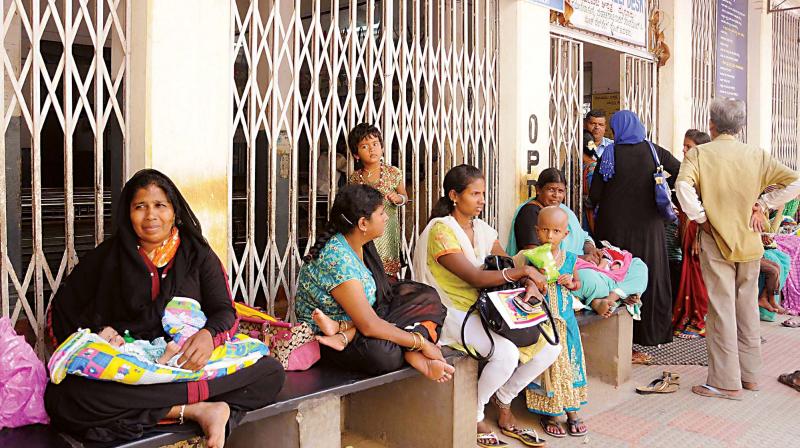Guest column: Universal health hampered by accessibility, lack of awareness'
Arogya Karnataka' is the state counterpart of UHC with Suvarna Arogya Suvarna Trust (SAST) for Management.

Universal Health Coverage (UHC) has been on the Government’s agenda since the high-level expert group report was submitted in 2011.
The Union Government had announced ‘Ayushman Bharat’ during its budget for 2018 and committed to bring a transformation in access to quality health services and provide financial protection.
‘Arogya Karnataka’ is the state counterpart of UHC with Suvarna Arogya Suvarna Trust (SAST) for Management. Patients get a unique identity number (ARKID) and a healthcare ‘Arogya Karnataka Card’.
Rs 30,000 per annum will be provided for specified complex secondary treatment for up to five members per family and the annual limit of Rs 1.5 lakh for specified tertiary care with an additional assistance of Rs 50,000 for an emergency.
As the scheme is being implemented in a hurry, poor awareness and lack of clarity regarding mandatory rules of referral system from a government hospital, BPL and Aadhaar card requirements etc have created confusion. So far only 471 hospitals in the state have empaneled and many hospitals are waiting for rate revision.
Nearly 2.2 lakh people have availed the card and its distribution was on. At the hospital level, confusions regarding eligibility to ESI or other private health insurance holders etc will interfere with the smooth implementation of the scheme.
There are many schemes in health such as cash benefits for Maternal & Child Health Services, programmes to reduce out of pocket expenses like Jan Aushadhi, earlier Vajpayee Arogyashree, and other government health insurance schemes.
Many programmes tend to be under-utilized due to lack of awareness, slow processing, travel to distant places, family support and limited information about schemes by the public.
From the system perspective lack of continuous monitoring, supervision, coordination, too many schemes, weak referral systems and lack of periodic evaluation of schemes/programmes further complicates the situation.
In one year since the announcement of mandatory prescription of generic drugs, we have seen challenges from the doctors and at the dispensing end. In our assessment, it was found that doctors were not prescribing generics, citing quality as a major issue. Only few doctors prescribe generics state that they do not find the quality up to the mark. Hence it is a tough call for medical practitioners and dispensers.
The writer is Director, IIHMR (Institute of Health Management AND Research), Bengaluru.
B04

